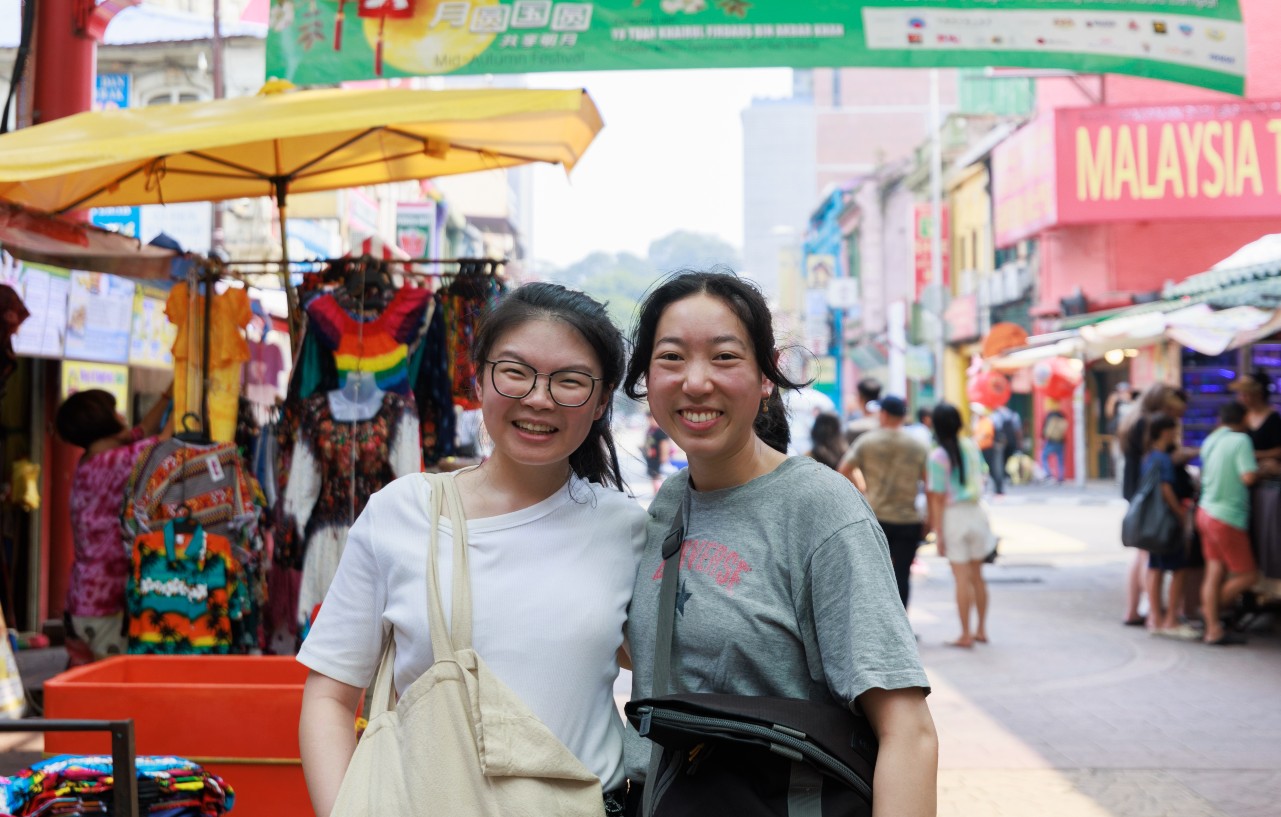Anna Bao En Sing: Balancing Music and Medicine

For the first time in more than five years, The University of Melbourne Symphony Orchestra (UMSO) has just completed an international tour of Singapore and Kuala Lumpur.
Under the guidance of conductor Associate Professor Richard Davis, the tour saw more than 100 of the university’s student musicians come together to perform the works of Mahler, Ginastera, and an original composition by the Melbourne Conservatorium of Music’s own, Melody Eötvös.
Touring provides musicians with an opportunity to hone their performance skills, adapting to new stages and acoustics. It means managing jetlag, living out of a suitcase, and embracing new cultures, all while delivering a consistent world class performance.
Anna Bao En Sing, a violinist in the UMSO, is completing a Diploma in Music alongside her Doctor of Medicine. The concert tour has allowed her to continue pursuing a lifelong passion, one that offers her a sense of community and balance for her studies.
‘I started studying music from a young age, it’s always been a part of my life. So even when I came to university and started my studies in biomedical science, I wanted to maintain that connection. Studying the Diploma in Music allowed me to do that.’
And the opportunities facilitated by travel, and the challenges of the concert tour, have deepened those connections even further.
‘I love playing chamber music. I love being in an orchestra. Travelling together creates a sense of comradery and friendship. It gives you an opportunity to connect with the other musicians in a way that rehearsing and playing in Melbourne doesn’t. Normally, I don’t get much of a chance to talk to percussion, or the double bases, or the horns. Now, there are lunches, dinners, 6-hour bus rides and 8-hour flights. It also changes the way you play. You play better when you know the people playing around you, and it gives us the chance to refine our sound. It allows us to get more comfortable with the repertoire, and hone those really small details, as well as getting used to the acoustics in the different venues where we perform. Learning how to adjust our playing to the space has been an incredibly valuable experience.’
For Anna, studying medicine and music at the same time hasn’t always been easy. Often, it’s a case of creating time for something she loves, but the lessons she’s learned in striking this balance have been invaluable, such as the parallels she sees across both disciplines.
‘There are two, that I can think of immediately. This first is problem solving. In music, you spend a lot of time in practice and rehearsal, thinking about what you can do better, and seeing what you can do, technically, to create an effect or expression. That’s similar in medicine, where if you want to figure out what’s happening to someone, or how to manage something, there’s that element of deduction and problem solving,’ she says. ‘The second major similarity is teamwork. In chamber or orchestral music, you’re always playing with different people, and you’ve got to find a way to communicate, whether that’s verbally, or through your playing. In medicine, you’re always working with different people. Whether it be others doctors, nurses, physiotherapists, or any of a number of allied health professionals. There has to be communication, especially when it comes to that important attention to detail.’
Now, with the tour behind her, and her career ahead, Anna has come to appreciate the value of her experience, and how the balance she has created for herself has allowed her to connect with friends, form a community, and maintain a sense of mental wellbeing.
Learn more about the University of Melbourne Symphony Orchestra